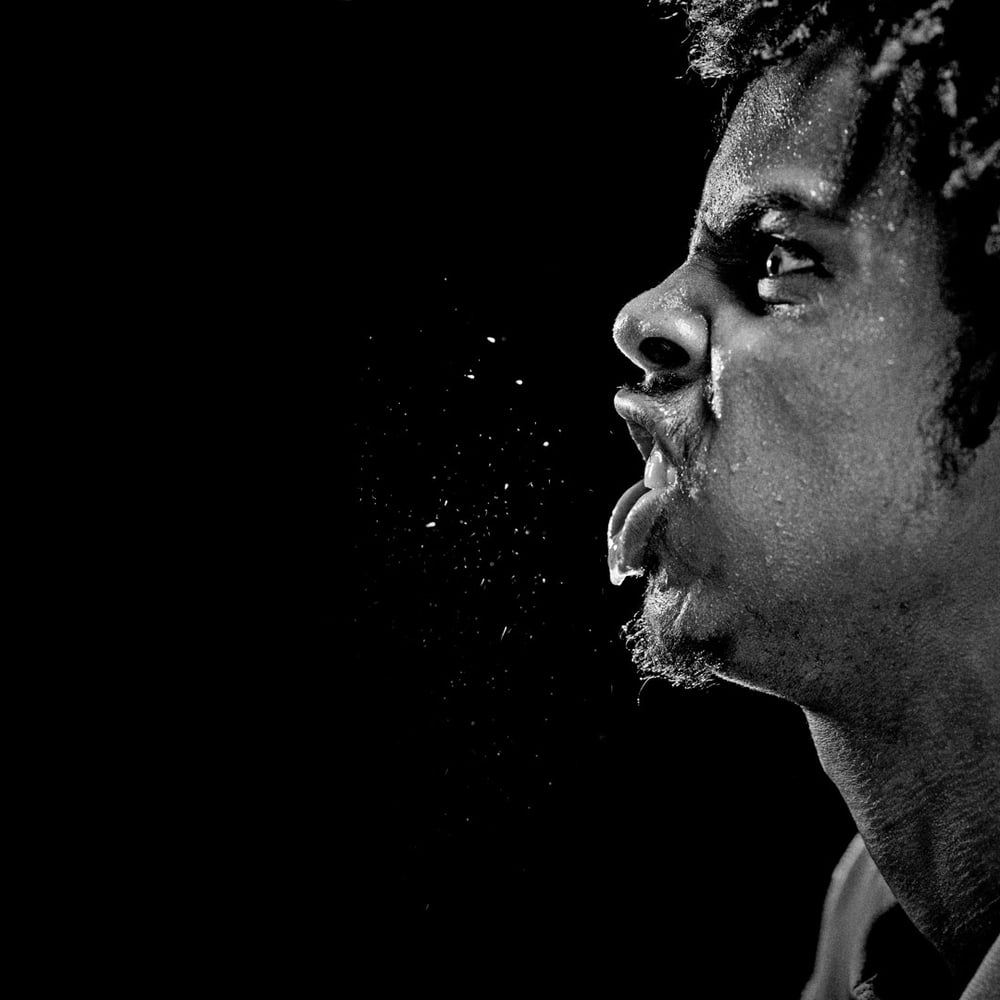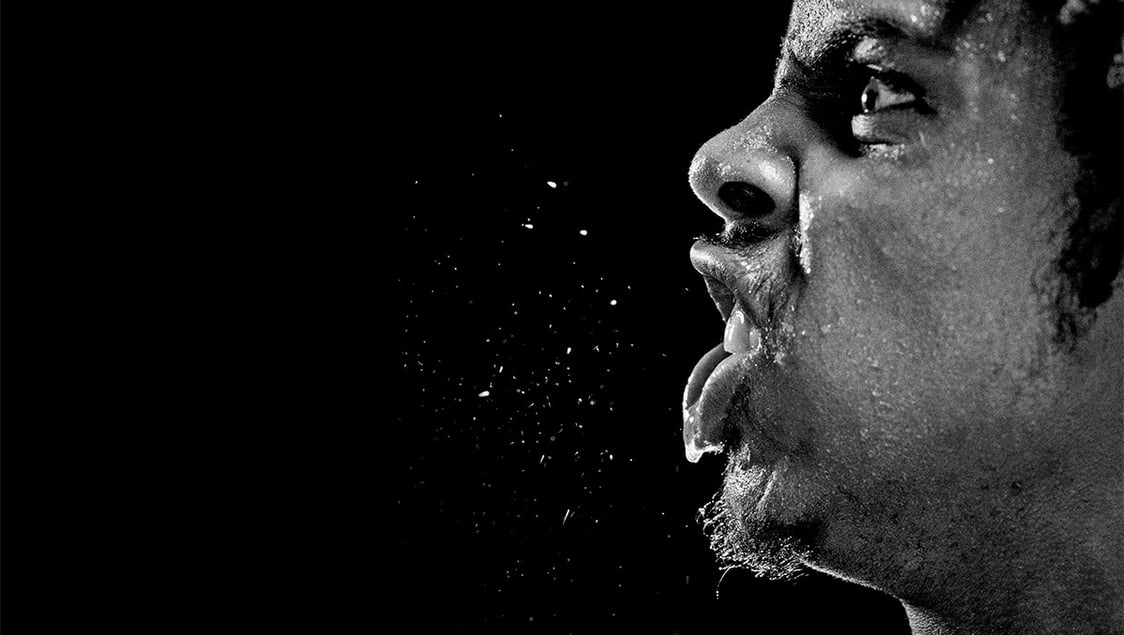
Issue 202
February 2024
You can use the power of your mouth to lift more, punch faster, and even come across as more credible to opponents, all by uttering a magic word. Ray Klerck explores why curse words are so powerful that we don’t want to publish them here.
It’s tricky to break down what transforms a regular word into a fistful of verbal dynamite—a curse word. These words have a great mouth feel because they’re soaked in emotion, touching on the taboo, and are packed with a punch that can jolt your system into a higher gear. From the octagon to the gym, MMA fighters like Conor McGregor and Nate Diaz have turned the air blue with their choice of words, not just for the shock value but as a testament to their raw intensity. In cultures worldwide, the essence of a curse word lies in its ability to evoke strong reactions—be it the mention of sexual anatomy, bodily functions, or the sacred turned profane. Yet, this ability to provoke lends curse words their power and give you a free tool every fighter should learn how to wield.
FIGHTING WORDS
Consider the primal scream of a fighter enduring a grueling training session. This isn't just noise; it's a battle cry, a release of energy. Most of us reach for the fireworks of those curse words during moments of genuine pain. But why? Psychology lecturer Dr Richard Stephens from Keele University, UK, wanted to find out. A group of volunteers were asked to give them five words they’d use if they hit a finger with a hammer and five words they would use to describe a table. Then they had that same group of people immerse their hand in freezing water, so cold it is painful. This commonly used method for assessing pain levels is called ‘cold-presser pain tolerance.’ Then, while the volunteers did the test, they were asked to say one of the five ‘hammer/hit’ words (each person’s chosen curse words) or one of the table words. The researchers measured pain perception noted by the volunteers, how long they could withstand the pain, and heart rate. Swear-ing not only increased pain tolerance, meaning individuals could withstand greater pain but also lower heart rate and decreased perception of pain. The difference was so notable that duration increased by more than half as long again when swearing compared to not swearing. F***ing brilliant, right? Imagine how formidable that pain tolerance would become on that final set of a workout or while locking horns with an opponent and find that a well-timed curse can give you the strength to land that knockout punch.

POWERFUL SYMBOLISM
A secret power could well stem from a verbal spray that would make Gordon Ramsey blush. Those same researchers from Keele University, who seem to enjoy exploring the power of expletives, designed an experiment to see how swearing impacts strength and aerobic exercise. The study participants did a short yet intense activity on an exercise bike. Each time, they had to repeat a specific word throughout. In one session, that word was a neutral one. In the other session it was a curse word. In the second experiment, participants did an isometric handgrip text. This test was done three times while saying a curse word and three times saying a neutral word. The results from both experiments were clear — cursing helped produce more anaerobic power in the cycle test and a stronger grip in the other test. During the cycling test, peak power, the amount of energy generated by the cyclist at their highest output) improved by 24 watts.
Interestingly, the participants didn’t perceive any more significant level of exertion. In the handgrip test, participants’ strength increased by an average of 2.1kg. This could mean the difference between silver and gold in an Olympic scenario.
FOUL MOUTH MIND
While the science shows swearing has its uses, there isn’t yet clear evidence as to why it works. But as both physical responses of increased strength and more power relate to be-ing in danger or, more specifically, stimulating your body’s sympathetic nervous sys-tem, it could be down to your flight or fight mode, also known as hyper-arousal. This is the state your body experiences when you’re under threat of something. Your heart pounds. Your focus narrows. Norepinephrine and epinephrine are released, and you’re ready to run, attack, or perform whatever physical act necessary to ensure your survival. Swearing, related to this kind of dramatic scenario, may trigger the same physical re-sponse as genuinely being in that flight/fight scenario, giving you the same chemical rush that gives you more power and strength in the moment.
CAN YOU SWEAR IN A FIGHT?
Mocking your opponent is one thing, but are you allowed to swear up a storm during a fight? Technically no. As per the UFC rule book, using abusive language in the fighting area constitutes a foul in a contest or exhibition of mixed martial arts and may result in penalties at the referee's discretion. So fighters aren’t allowed to swear during a fight, though this isn’t always implemented, which is evident if you’ve ever watched the Diaz brothers fight. Referees look the other way with swearing, but there is likely a line be-tween racial or bigoted slurs that would definitely carry some penalty. This loophole is not an invitation for fighters to run their mouths because Danny Sabatello was fined $5,000 by the Mohegan Tribe Department of Athletic Regulation for his post-fight pro-fanities after his victory over Leandro Higo at Bellator 282 in Connecticut on Friday. That was over a microphone and directed to the crowd, so a well-placed F-bomb during a fight is unlikely to create any repercussions.
SWEARING IN TRAINING
With all these positive effects of swearing occasionally, it’s also helpful in social settings like the gym. Tight groups often have their own unique curse language, and using those exact words can bring you closer as a team. Cussing can be funny, make you feel part of the tribe, and even be used to initiate new tribe members. A team of researchers from the University of Auckland, New Zealand, found that swearing around others in a social group, whether work, family, or friend-related, all comes down to how well you know them. The boundaries are usually set so you know how to play according to the rules. If a newcomer arrives on the scene, they may be tested by joshing around until they under-stand the rules of cursing or jocular abuse of members within the tribe. Like a code word, certain curse words can be the key to being accepted, a valuable insight to re-member if you’re starting with a new team.
Moreover, cursing when in your chosen group can even help alleviate the pain of exclu-sion in other social settings. Researchers from the University of Queensland, Australia, found that when participants were allowed or encouraged to swear after being made to recall an event where they felt hurt or left out by a social group, it reduced the pain of that memory. Who needs expensive therapy when you can just curse like a sailor with your mates to relieve the pain of rejection?

SWEARING PERFECTION
Swearing follows the rules of diminishing returns because overusing your power words makes them become all retch, no vomit. Being foul-mouthed on the daily reduces their effect on pain tolerance, according to the researchers from Keele University. People who cursed a lot saw lesser benefits during the pain toleration experiment in comparison to those who didn’t swear regularly. A well-timed expletive once in a while will have far more effect if you’re not spitting them out at everything and everyone, it seems. Use it (under your breath, of course) at crucial points in your workouts or fights. It could be the sledgehammer on the thumbtack of your workout’s intensity. Just don’t overuse it. Like almost anything that gives you a power boost, be it coffee, an energy drink, or cursing, if you overdo it, it loses its power. In small doses, though? That sh** is f****ing good.










